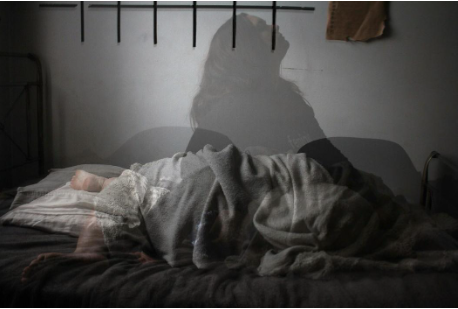Do you struggle with falling asleep and wondering about the reason behind it? Like many people, you might think of your caffeine intake or stress as the underlying cause of your insomnia. However, it is not always about it.
Suppose you are struggling with insomnia despite trying several remedies like managing your screen time or drinking some herbal teas. In that case, there is a likelihood that you might be overlooking some hidden triggers.
Sometimes, we unconsciously make such choices that disrupt our sleep patterns. While you can get personalized assistance for insomnia from providers on Klarity Health, we have outlined some of its common culprits in this blog. Let’s explore what is keeping you awake at night.

Hidden Causes of Insomnia
Stress and physical illnesses are the common reasons for insomnia. However, some other reasons interfere with sleep. Here are some common reasons that are often overlooked.
- Bedroom Temperature
When our body is preparing for sleep, the normal body temperature lowers to induce sleep and calmness. However, if your bedroom’s temperature is too high or too low, it disrupts this process making it harder to sleep. Sometimes, your bedding quality is inappropriate and hinders the regulation of your body temperature.
To fix this issue, maintain the room temperature at an ideal sleep temperature of 60–67°F (15–19°C). Adjust your bedding according to the seasonal requirements like layering for winters or using breathable cotton sheets for summers.
- Disrupted Sleep Schedule
Your circadian rhythm, which is the body’s internal clock, is sensitive to fluctuating schedules. If you are sleeping at different times every night or taking frequent or long naps during the day, it disrupts your internal clock. Eventually, it affects the release of the sleep hormone “Melatonin” causing insomnia.
Instead of sleep-ins on the weekend, try to sleep and wake up at the same time each day. Make sure that your naps are not longer than 30 minutes. Moreover, exposing yourself to sunlight in the morning can reset your internal clock making it easier to build a routine.
- Unconscious Caffeine Intake
Avoiding your evening coffee is never enough. Nowadays, caffeine has become a part of our lifestyle and is hidden in our diet in the most unexpected ways. Green tea, energy drinks, and dark chocolates are part of our everyday diet but we are never conscious of their caffeine content. Even some medications have caffeine which stays in your body for at least 6 hours troubling your sleeping pattern.
Even a small amount of caffeine can trigger insomnia. Always check the food labels to find the hidden sources of caffeine and avoid their consumption after 2 pm.
- Gut Health Issues
There are some strong connections between your gut and sleep. Therefore, gut health issues can trouble your sleep. Spicy and processed foods and high sugar intake can cause issues like bloating, acidity, and imbalance in the beneficial gut bacteria making it harder for your body to relax at night and fall asleep. Moreover, the low serotonin production in the gut can suppress melatonin levels, thus worsening your insomnia.
Avoid excessive sugar or spices, especially before bedtime. Eat a balanced diet containing the appropriate amount of fiber and lean protein to prevent gut issues.
- Blue Light Exposure
Many of us have developed the habit of scrolling our phones or watching TV for hours before bedtime. This blue light exposure decreases the release of melatonin in the body making it difficult for your body to sleep at the right time. Therefore, even if you are feeling tired, you stay awake for hours due to the overstimulation of the brain.
Fix this issue by avoiding prolonged exposure to blue light, especially before your sleep time. You can also use warm lights and blue-light-blocking glasses to protect your eyes and regulate your sleep patterns.
- Stress and Anxiety
Sometimes, it is your own mind that keeps you up instead of the external factors. Excessive stress elevates the level of cortisol in the body which is the hormone that keeps our body alert. As a result, it disrupts our sleep. Furthermore, the sleep anxiety adds to the frustration making the situation worse.
Relaxation techniques like breathing exercises, meditation, or journaling before bedtime can help you manage your stress and shift your focus from the stress that is interfering with your mental peace.
Final Words
Insomnia can be triggered due to some little things that often go unnoticed. From improper room temperature to excessive blue light exposure, our own choices deteriorate our sleep quality. However, you can make a huge difference to this condition by making small intentional changes to your lifestyle.
If you are having difficulty treating insomnia, you can seek professional guidance to find some effective solutions. If medically appropriate, getting an Ambien prescription online under supervision may help treat chronic insomnia. Make the right choices and take control of your sleep.















